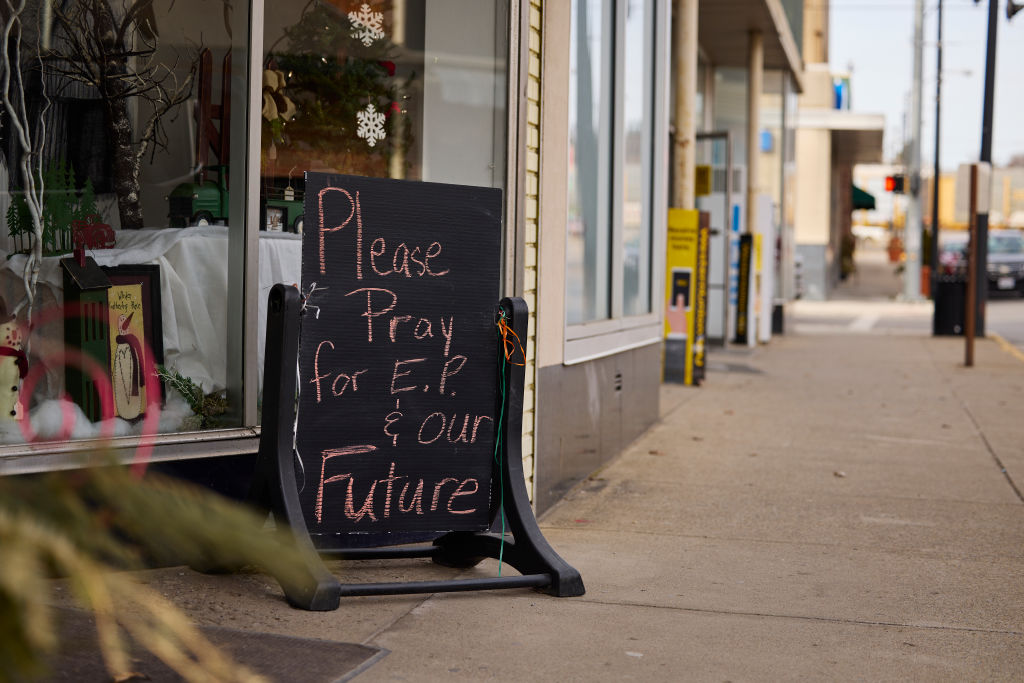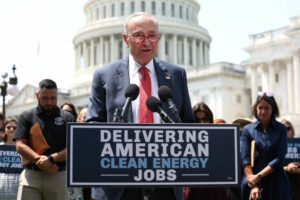The derailed train in East Palestine, Ohio, has created significant environmental hazards, not only to the residents of that town but also to countless other communities along the Ohio River. The derailment led to an enormous chemical fire, with hundred-foot flames and a plume of black smoke exposing local communities to a variety of chemicals, including the carcinogen vinyl chloride and phosgene, the latter of which was used as a chemical weapon in World War I.
These highly toxic chemicals were spread into the air, water, and ground, and are threatening public health and displacing residents. The Ohio River is a source of drinking water for multiple states, and the E.P.A. is concerned that it has been seriously compromised. It is estimated that some 3,500 fish have been killed by the pollution thus far. Meanwhile, residents of East Palestine who have been assured that it is safe for them to return home have been complaining of nausea and severe headaches.
So it is a supreme irony that substantial shareholders in the railway involved, Norfolk Southern, include two of the biggest promoters of ESG investing: BlackRock and Vanguard.
According to various sources, top shareholders in Norfolk Southern Corp. are the Vanguard Group, and subsidiaries of BlackRock and JP Morgan. Specifically, as of this week, CNNMoney.com lists the Vanguard Group, Inc. as the top shareholder with 7.68 percent. BlackRock Fund Advisors and JPMorgan Investment Management tie at 4.54 percent as other top investors. As of December 31, 2022 Norfolk Southern’s own website lists Vanguard, BlackRock Institutional Trust Company and JP Morgan Asset Management as top shareholders.
The latest information about the cause of the accident and toxic discharge, indicates eleven of the fifty rail cars were carrying hazardous materials.
Josh Shapiro, the governor of Pennsylvania, criticized Norfolk Southern’s response in a Wednesday letter to Shaw, saying that mismanagement by the company had put first-responders and residents “at significant risk.” He said the rail company’s personnel made decisions without talking to state and local agencies, caused first-responders to have a lack of awareness, gave state officials inaccurate information about the impact of the controlled release of vinyl chloride and “failed to explore” alternatives to the controlled release that might have been safer.
“Norfolk Southern has repeatedly assured us of the safety of their rail cars — in fact, leading Norfolk Southern personnel described them to me as ‘the Cadillac of rail cars’ — yet despite these assertions, these were the same cars that Norfolk Southern personnel rushed to vent and burn without gathering input from state and local leaders,” Shapiro wrote.

Although not right now.
Both Vanguard and Black Rock are notable for having promoted investments based not on traditional criteria to which fiduciaries have been bound, such as profitability and capital accounts, but rather on how these investment managers assess the ESG (environmental, social and governmental) policies of the companies in which they place investment funds. Of course, their analyses are utterly subjective, fluid, and difficult to quantify. Unsurprisingly, these investments are generally underperforming. As we’ve frequently noted in this space in the past, a number of states are fighting back against placing investments through these operations for these very reasons.
Maybe, to be consistent with ESG policies, investors should shun Vanguard and BlackRock over their role in the disaster in East Palestine.






Do you think id the put up a Ukraine Flag Biden would send them Disaster Funds?